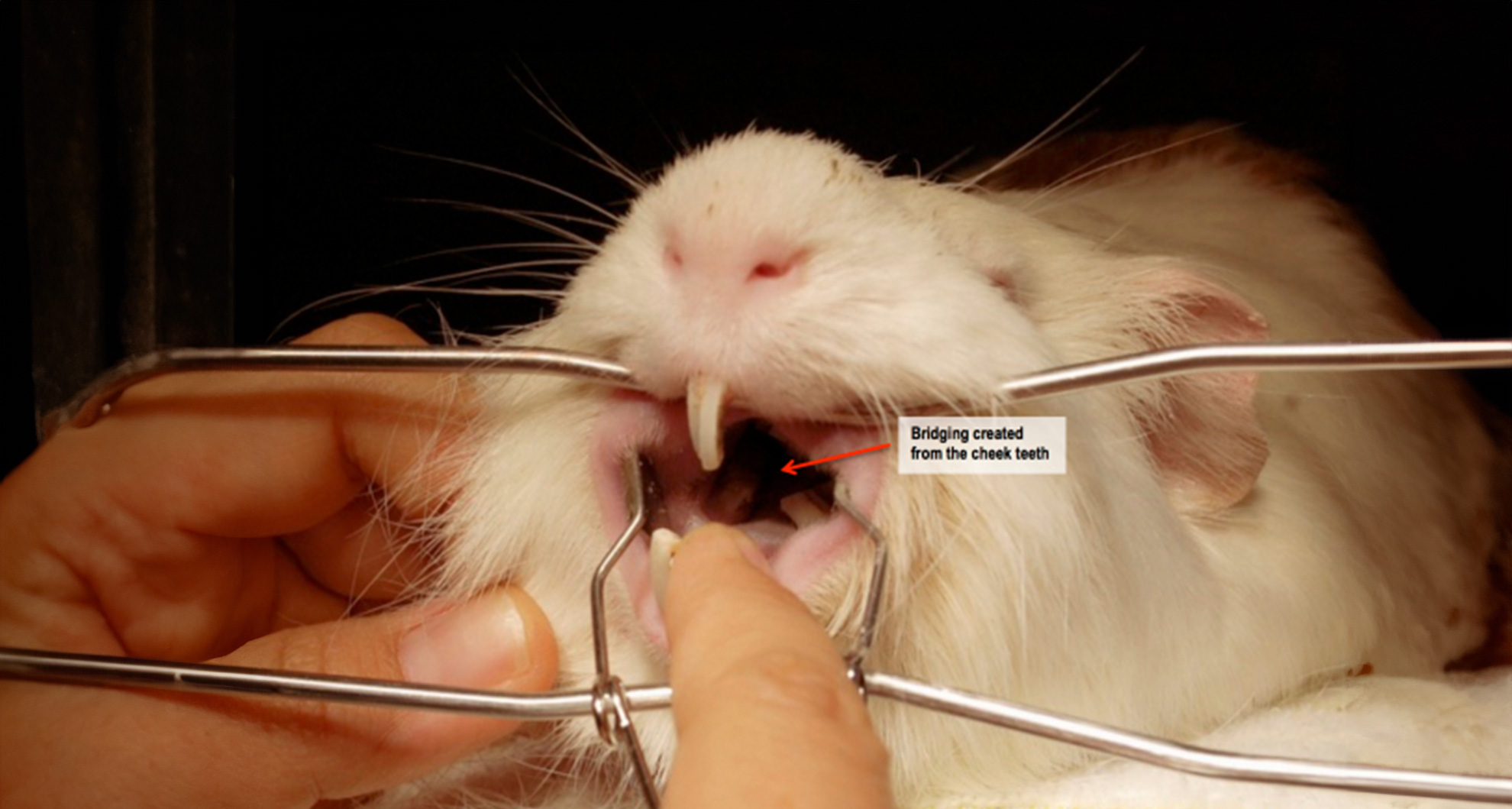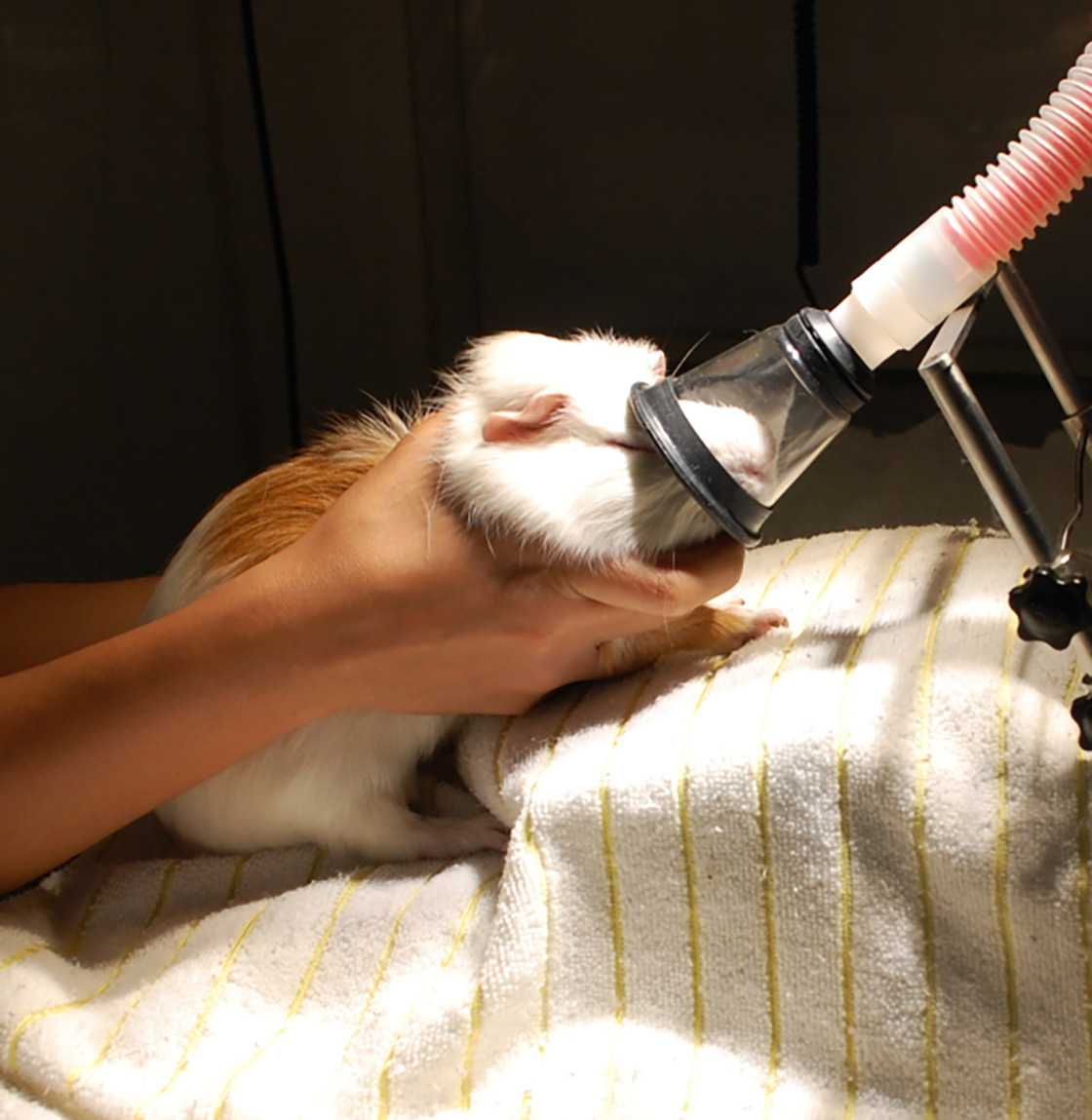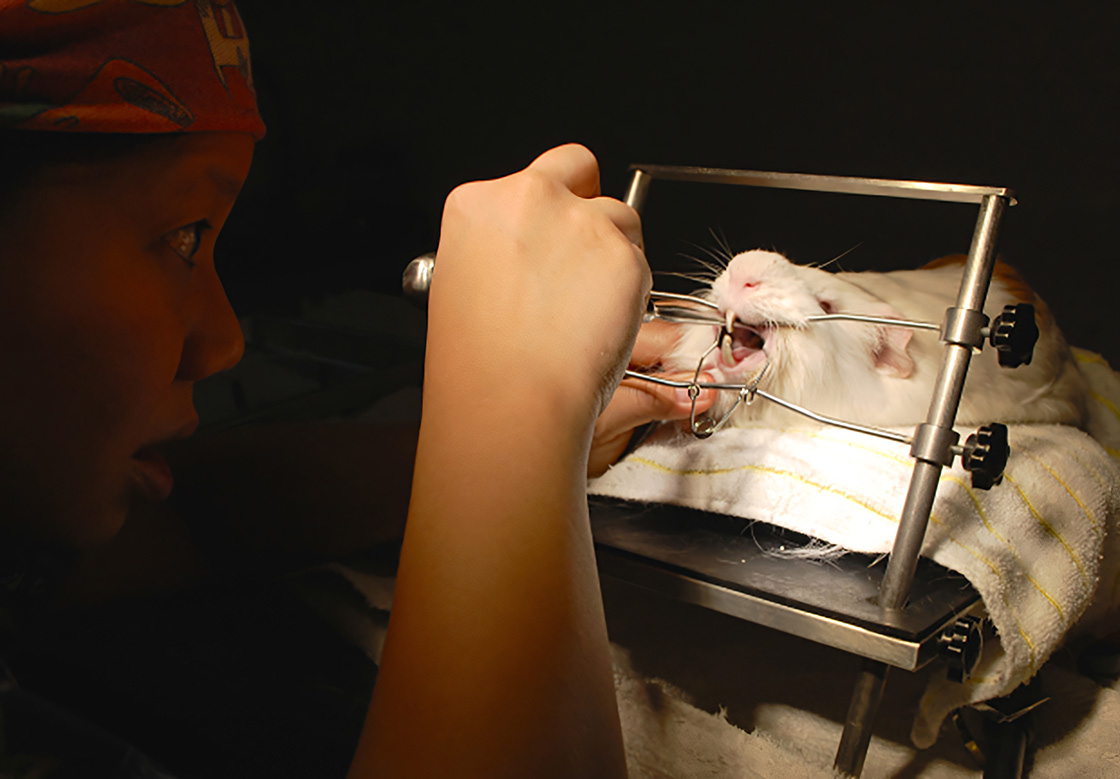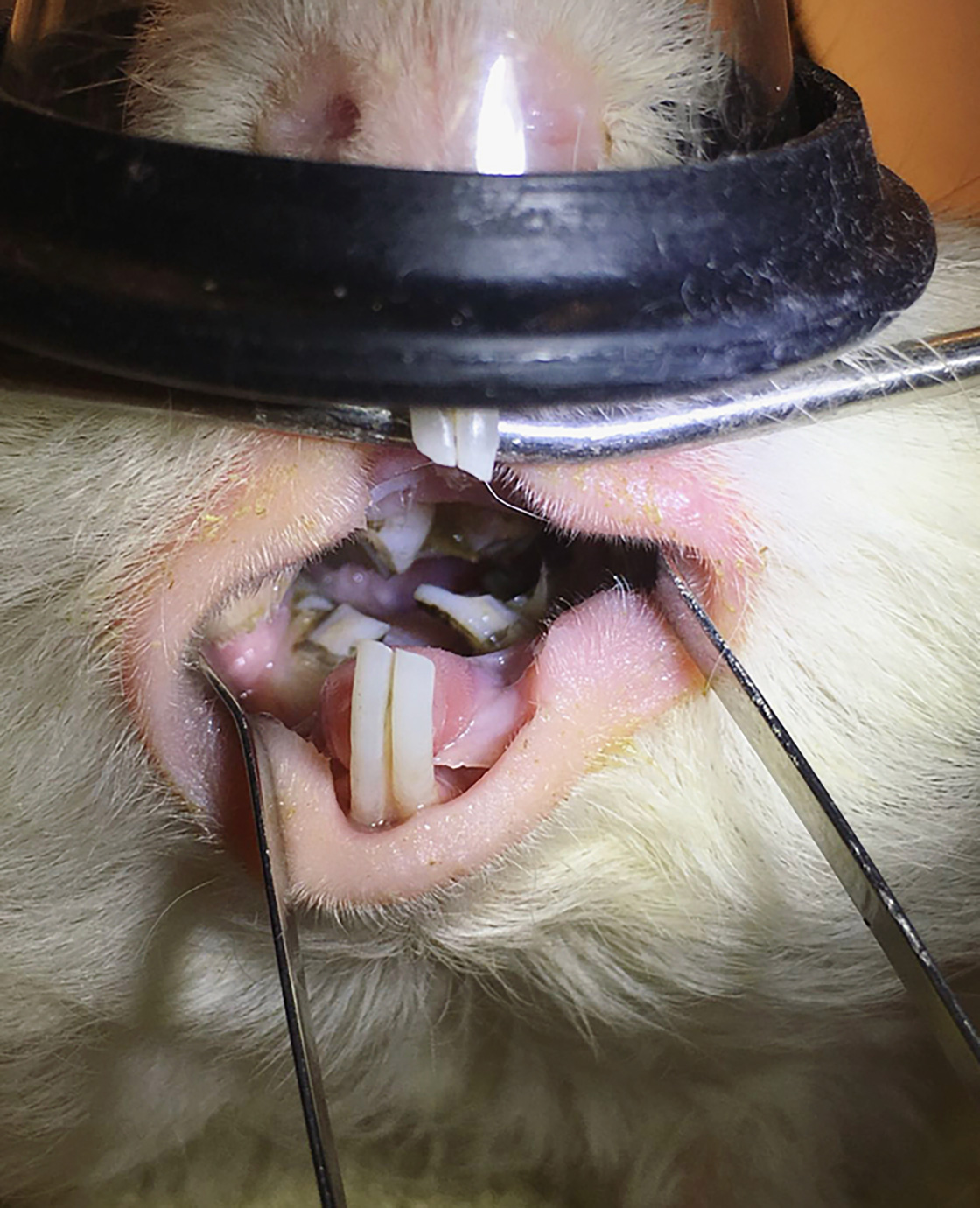Guinea Pigs Overgrown Teeth



- decreased appetite
- preference of soft foods over hard foods
- weight loss
- excessive drooling
- tooth grinding
- facial abscesses

Unlike dogs and cats, guinea pigs do not vomit. There is no need to withhold food or water before general anaesthesia.
When front incisors are not evenly lined up (chipped or overgrown), it is difficult for your guinea pig to pick up and gnaw food. Overgrown teeth can also cause painful injuries to the mouth. Overgrown teeth are filed with specialised equipment. They should not be filed too short (just enough to avoid contact with lower gums or roof of the mouth), otherwise your guinea pig will have problems picking up food.

It is very difficult for owners to examine their guinea pig’s back teeth because of buccal pads (cheek pads) which block the view. Using buccal pad separators and a lighted scope, Dr Sarah Wong is able to see that the lower molars are growing towards the centre, creating a bridge over the tongue. If the tongue is eventually trapped by overgrown molars, it will be difficult or impossible for Alfie to swallow.

While lower molars tend to overgrow inwards, upper molars tend to overgrow outwards towards the cheeks. The sharp spurs can cause painful sores inside the mouth if they are not filed down. Teeth overgrow due to various reasons like illness, improper diet or genetics. Some guinea pigs may require dental treatment every few months.
Some tips to prevent malocclusion
- Weekly: Weigh your guinea pigs. Weight loss is an early indicator of health problems, including malocclusion.
- Weekly: Examine the incisors (front teeth). Make sure they are not overgrown or chipped.
- Weekly: Feel along the jaw lines. Check for sensitive areas which might indicate the presence of spurs.
- Daily: Feed lots of hay! Guinea pigs need to constantly chew tough fibrous foods like grass hay to wear down their constantly growing teeth. Provide fresh, high quality grass hay (e.g. Timothy hay) throughout the day.
Dr. Sarah Wong, Mount Pleasant East
- decreased appetite
- preference of soft foods over hard foods
- weight loss
- excessive drooling
- tooth grinding
- facial abscesses

Unlike dogs and cats, guinea pigs do not vomit. There is no need to withhold food or water before general anaesthesia.
When front incisors are not evenly lined up (chipped or overgrown), it is difficult for your guinea pig to pick up and gnaw food. Overgrown teeth can also cause painful injuries to the mouth. Overgrown teeth are filed with specialised equipment. They should not be filed too short (just enough to avoid contact with lower gums or roof of the mouth), otherwise your guinea pig will have problems picking up food.

It is very difficult for owners to examine their guinea pig’s back teeth because of buccal pads (cheek pads) which block the view. Using buccal pad separators and a lighted scope, Dr Sarah Wong is able to see that the lower molars are growing towards the centre, creating a bridge over the tongue. If the tongue is eventually trapped by overgrown molars, it will be difficult or impossible for Alfie to swallow.

While lower molars tend to overgrow inwards, upper molars tend to overgrow outwards towards the cheeks. The sharp spurs can cause painful sores inside the mouth if they are not filed down. Teeth overgrow due to various reasons like illness, improper diet or genetics. Some guinea pigs may require dental treatment every few months.
Some tips to prevent malocclusion
- Weekly: Weigh your guinea pigs. Weight loss is an early indicator of health problems, including malocclusion.
- Weekly: Examine the incisors (front teeth). Make sure they are not overgrown or chipped.
- Weekly: Feel along the jaw lines. Check for sensitive areas which might indicate the presence of spurs.
- Daily: Feed lots of hay! Guinea pigs need to constantly chew tough fibrous foods like grass hay to wear down their constantly growing teeth. Provide fresh, high quality grass hay (e.g. Timothy hay) throughout the day.
Dr. Sarah Wong, Mount Pleasant East
- decreased appetite
- preference of soft foods over hard foods
- weight loss
- excessive drooling
- tooth grinding
- facial abscesses

Unlike dogs and cats, guinea pigs do not vomit. There is no need to withhold food or water before general anaesthesia.
When front incisors are not evenly lined up (chipped or overgrown), it is difficult for your guinea pig to pick up and gnaw food. Overgrown teeth can also cause painful injuries to the mouth. Overgrown teeth are filed with specialised equipment. They should not be filed too short (just enough to avoid contact with lower gums or roof of the mouth), otherwise your guinea pig will have problems picking up food.

It is very difficult for owners to examine their guinea pig’s back teeth because of buccal pads (cheek pads) which block the view. Using buccal pad separators and a lighted scope, Dr Sarah Wong is able to see that the lower molars are growing towards the centre, creating a bridge over the tongue. If the tongue is eventually trapped by overgrown molars, it will be difficult or impossible for Alfie to swallow.

While lower molars tend to overgrow inwards, upper molars tend to overgrow outwards towards the cheeks. The sharp spurs can cause painful sores inside the mouth if they are not filed down. Teeth overgrow due to various reasons like illness, improper diet or genetics. Some guinea pigs may require dental treatment every few months.
Some tips to prevent malocclusion
- Weekly: Weigh your guinea pigs. Weight loss is an early indicator of health problems, including malocclusion.
- Weekly: Examine the incisors (front teeth). Make sure they are not overgrown or chipped.
- Weekly: Feel along the jaw lines. Check for sensitive areas which might indicate the presence of spurs.
- Daily: Feed lots of hay! Guinea pigs need to constantly chew tough fibrous foods like grass hay to wear down their constantly growing teeth. Provide fresh, high quality grass hay (e.g. Timothy hay) throughout the day.
Dr. Sarah Wong, Mount Pleasant East